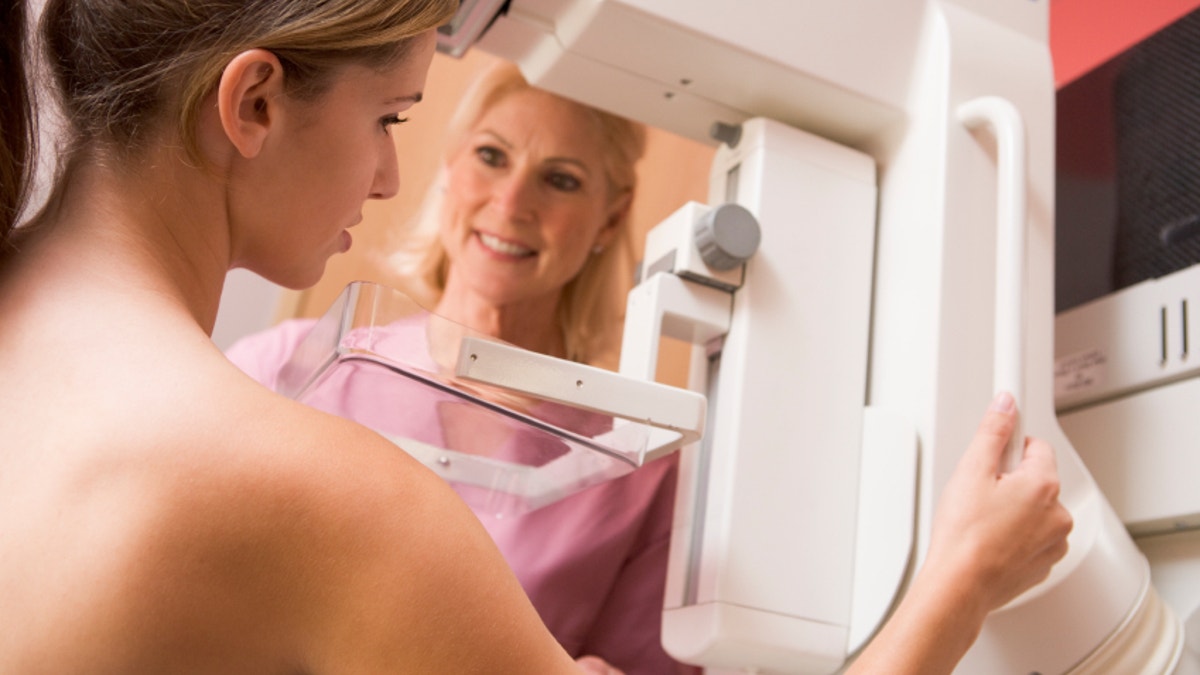
Nurse Assisting Patient Undergoing Mammogram (iStock)
You always make sure to get your child to the doctor for his well visits, and maybe you even push your spouse to get a yearly physical – but are you up to date on your own health check-ups? Find out the latest guidelines and recommendations that will keep you healthy, strong, and full of energy.
Pap smear and HPV test
A pap smear is one of the most important tests you need, as it is the screen doctors use to identify precancerous cells that could lead to cervical cancer. In the future, using DNA from pap smears may even be used to screen for endometrial and ovarian cancers, according to a recent study published in Science Translational Medicine.
Previously an annual test, new recommendations issued in 2012 now call for a pap smear every three years for women ages 21 to 29. For women 30 and older, recommendations call for a pap smear every three years or a pap smear and an HPV test every 5 years. It’s important to speak with your doctor about how often you should get these tests depending on other risk factors.
Well-woman visit
Despite the new pap smear guidelines, visiting your OB-GYN for an annual well woman visit is still necessary, according to Alyssa Dweck, a board-certified obstetrician and gynecologist and co-author of V is for Vagina.
Your doctor will do a pelvic exam to look for abnormalities of the external genitalia, cervix, uterus and ovaries. You will also have a breast exam which is recommended every one to three years for women ages 21 to 39, and yearly for women 40 and older. A well-woman visit is also a great opportunity for your doctor to evaluate your overall health and address any concerns you may have.
Sexually Transmitted Infections
Chlamydia and gonorrhea are two STIs that can cause serious damage to the reproductive system if they’re not treated. “These are often silent infections where women have no symptoms,” Dweck said.
Since they’re most common in women ages 15 to 24, yearly screening until age 25 are recommended. Depending on your risk, your doctor may also recommend regular screening for other STIs, including HIV.
Mammogram
Starting at age 40, you should get a yearly mammogram to screen for breast cancer. However, depending on your genetic and family history – as well as other risk factors – your doctor may recommend getting a mammogram earlier.
Cholesterol
One in four women die from heart disease each year, so keeping your cholesterol levels in check is important for a healthy heart. A blood test which screens for both LDL (bad cholesterol) and HDL (good cholesterol) levels and triglycerides should be checked once a year, according to Dr. Rose Kumar, a board-certified internist, founder and director of the Ommani Center for Integrative Medicine, and author of Becoming Real. If your levels are elevated, you should be tested six months after you’ve made lifestyle changes or have been prescribed medication.
Thyroid
“The thyroid gets sluggish in association with the hormonal changes that occur,” said Kumar. She added that anytime estrogen or progesterone change, particularly after giving birth or during perimenopause, a thyroid test that establishes a normal thyroid hormone level is ideal. If you’re breastfeeding, have postpartum depression, or you’re tired or have gained weight, it’s important to have your thyroid level checked as well.
Vitamin D
Vitamin D is essential for strong bones and healthy skin – and some studies suggest may even prevent certain cancers. All women are at risk for being vitamin D deficient, particularly breastfeeding moms, according to Kumar. “A lot of the calcium is coming out of their bones in order to supply calcium for the child,” she said. High levels of vitamin D can be toxic, so speak with your doctor about your diet and about adding a supplement.
